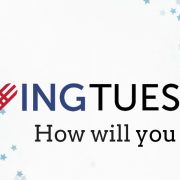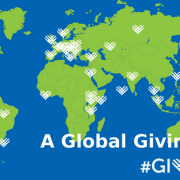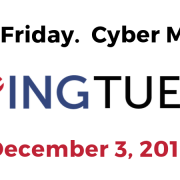You are a superhero. Seriously, you have the ability to change the world or, at the very least, your little corner of it. You can affect this level of change just by asking yourself one simple question: what causes would I like to benefit in my will?
Bequests to Charities in Your Will
Yes, that’s right. You can include the nonprofits you care about most in your will, leaving a legacy after you have passed on. And, it doesn’t cost anything extra! Just the assets you’re choosing to gift. You can include charities like your church, alma mater, a local cause, or an international organization in your estate plan. And, if you ask the charity you care about most, I’ll bet they’ll tell you that the result of your charitable bequest, no matter how big or small, can make a huge impact.
What About My Kids?
When folks come to me for estate planning help, a major reason they do so—perhaps even the single reason they do so—is to benefit their children. Parents often think, “I love Charity X, but of course, I love my kids even more, and I’ve got to take care of my family.” Of course, you do! And, of course, you should! But, ask yourself another question: How much is enough for my kids? If you have lots of assets, and/or your children are adults, and successful on their own, could you provide adequate support for your children and still also include a bequest to one of more charities?

Let’s Talk
Invite the whole family to the kitchen table sometime (even if your kitchen table is a virtual one, via email) and talk about the distributions you want to make at death. Ask if including gifts to charity from your estate plan would be appropriate and acceptable to the kids. Perhaps it’s a charity the whole family supports. Perhaps this will be the beginning of a multigenerational cycle of giving.
Why not talk about it? This can be an especially productive conversation if you can explain that taxes are going to eat up a lot of one or more of the assets anyway, and this can be avoided by giving said asset(s) to charity (since charities are tax-exempt).
Life Insurance
Sometimes when parents give a major asset(s) to charity, and their kids’ inheritance takes a real hit, they’ll buy a new life insurance policy to make up the shortfall to the kids. Or, they may even buy a new life insurance policy and name the charity directly as a beneficiary. There’s also a very helpful kind of trust called an ILIT, that significantly increases the impact of life insurance. Without getting too complicated, let me give you the basics.
An ILIT is an irrevocable, non-amendable trust which is both the owner and beneficiary of one or more life insurance policies. Upon the death of the insured, the trustee invests the insurance proceeds and administers the trust for one or more beneficiaries.
What is the Role of an Estate Planner?
When it comes to estate planning, you’re thinking about so many different variables and scenarios, so what if you forget to factor in charity? Lucky for you, that’s why I’m here—to help you maximize charitable giving. That means determining how your generosity can not only help an organization make a difference but how you can maximize the financial and estate-related benefits from giving.
Studies Showed
A 2013 study* showed how lawyers, like me, can help charitable giving factor in estate planning. The scientifically-conducted research from the UK-based Behavioural Insights Team showed that when lawyers asked clients specific questions regarding charitable giving, the results were significant. Here are the results:
-
Control Group/Baseline
Lawyers who provided no reminder or inquiry to their clients about possibly benefiting a charity in their estate plan (bequests) resulted in 4.9 percent of those clients including a charity in their plans.
-
Test Group One
Lawyers who asked their clients, “Would you like to leave any money to a charity in your will?” resulted in 10.8 percent of their clients including a charity.
-
Test Group Two
Lawyers who said, “Many of our clients like to leave money to a charity in their will. Are there causes you are passionate about?” resulted in 15.4 percent of their clients including a charity. What a dramatic increase!
Here are the approximate dollar values associated with each group:
-
Control Group/Baseline
Average bequest $5,000
-
Test Group One
Average bequest $4,800
-
Test Group Two
Average bequest $10,200
Again, test group two gives a powerful example of the difference charity-minded estate planners can make.
In the study, there were a 1,000 people in each of the groups. That means that the “Test Group Two” raised over $1 million more than the control group.
![]()
What this means for you is that your lawyer plays an important role in reminding, guiding, and assisting you in your charitable giving so that you can use your superpower (giving through your will) to the fullest extent.
In 2017, $35.70 billion was contributed to US charities through bequests. Imagine if everyone worked with a lawyer with a strong focus on charitable giving! The impact could be incredibly transformative for the impact nonprofits can make in our communities.
Let’s Get Started
Harness your superpowers and get started with your legacy today. The best place to start is by filling out my Estate Plan Questionnaire. It’s easy, free, and there’s no obligation. It’s simply a document that gets you thinking and planning. Already have an estate plan, but want to update it to include the causes that are near and dear to your heart? Don’t hesitate to contact me.








